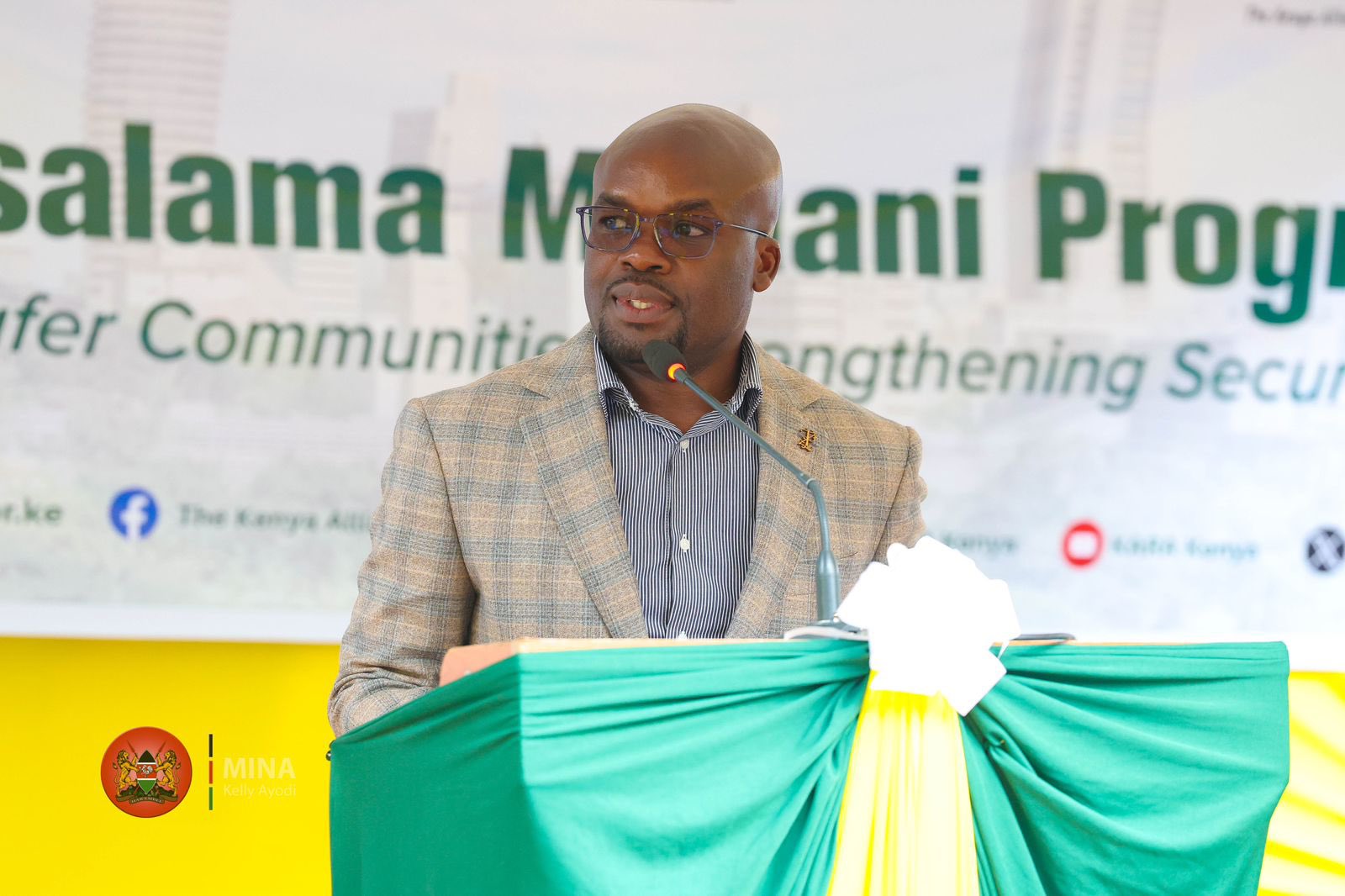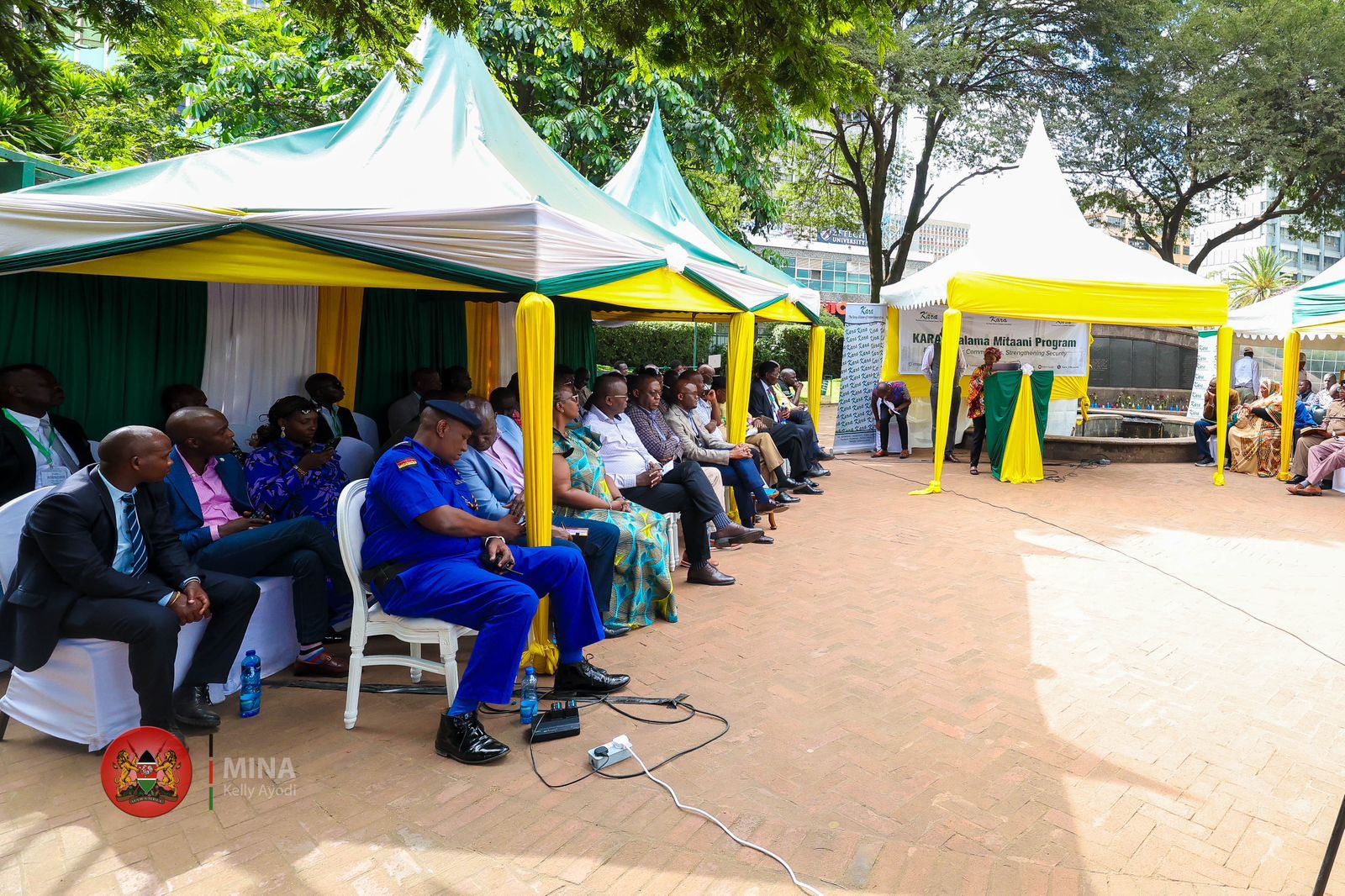News
Govt to Use Private Guards to Boost Estate Security Under New KARA Usalama Mitaani Plan

The Kenyan government is taking a bold step to tackle insecurity from the grassroots. Under the KARA Usalama Mitaani Programme, a new community-first initiative launched on June 8, 2025, over 1.2 million private security guards will now play a central role in estate-level policing.
The Ministry of Interior, in collaboration with the Kenya Alliance of Resident Associations (KARA), aims to enhance public safety by transforming every estate into a security hub.
The programme kicks off in Nairobi, Nakuru, and Mombasa, redefining crime prevention as a shared duty among citizens, private firms, and law enforcement.
KARA Usalama Mitaani Plan Brings Community-Led Security for Safer Neighborhoods
The KARA Usalama Mitaani Programme is built on one simple idea—security must start where people live. With only about 100,000 police officers serving over 50 million Kenyans, the numbers do not add up. That’s why the government wants to tap into a largely untapped resource—private security guards.
“These guards are already on the ground. They know the residents, they understand the patterns, and they are trusted,” said Principal Secretary Raymond Omollo during the official launch. “We cannot have a police officer on every street, but we can have eyes and ears in every estate.”
The programme focuses on empowering guards and residents alike. It encourages partnerships between private security firms, resident associations, grassroots leaders, and formal law enforcement. By creating a security web rooted in the local community, the government hopes to stop small-time crime before it grows.
Digital tools will support this shift. Residents will be able to report suspicious activity and get alerts using the Hatua App, while structured forums will keep all parties aligned.
“Safety starts with awareness,” noted Nairobi Woman Representative Esther Passaris. “When residents are trained, informed, and united, crime has no place to hide.”
Guards, Residents, and Police to Work Together
The real strength of the KARA Usalama Mitaani Programme is its structure. It brings together different players who have often worked in silos. Guards, residents, police officers, and national government officers (NGAOs) will now share intelligence and co-develop safety plans.
This change is not only about increasing security presence but also making sure everyone plays their part. Inspector General of Police Douglas Kanja emphasized this point. “The police are here to protect, but they cannot do it alone. Citizens must help us by reporting, watching out for each other, and supporting local officers.”
Under the programme, guards will be trained in crime detection, handling conflict, reporting protocols, and community engagement. These skills will help them not just respond to threats, but also prevent them.
Every estate will have a customized safety plan. These plans will be built during forums where all parties can discuss local concerns—like burglary, drug use, or domestic violence—and find real solutions.
The Ministry says this collaborative style will also reduce response time, build trust in police, and create a sense of shared ownership over public safety.
Youth, Drugs, and Healing From Within
Another urgent issue the programme addresses is the growing crisis of drug and alcohol abuse—especially among young people in informal settlements. The government knows that increasing patrols alone will not fix this.
That’s why KARA Usalama Mitaani Programme includes a major social support wing. Working with faith institutions, anti-narcotics agencies, and peer educators, the initiative will roll out awareness campaigns, early intervention programs, and referral systems for rehabilitation.
NACADA CEO Anthony Omerikwa explained how this works: “We’ve set up community-based rehab centres. This means people don’t have to travel far to get help. Recovery is becoming local, and communities can now take charge of healing their own.”
This model not only addresses the problem at its root but also reduces stigma and builds resilience.
Deputy Governor of Nairobi James Njoroge Muchiri urged all stakeholders to embrace the programme fully. “Let’s respect the work of the national government. Let’s collaborate with respect to safeguard our ongoing development.”
A Model That Could Transform National Security
If successful, the KARA Usalama Mitaani Programme could change how Kenya handles security across the board. Instead of relying solely on overburdened police forces, the government is now tapping into everyday citizens and trained private guards.
The partnership model increases reach, encourages responsibility, and strengthens bonds between authorities and the people they serve. It’s a shift from reaction to prevention, from top-down control to bottom-up collaboration.
While Nairobi, Mombasa, and Nakuru are the pilot areas, plans are underway to scale up the programme across the country. The goal is simple—build safer communities from the inside out.
Kenya Insights allows guest blogging, if you want to be published on Kenya’s most authoritative and accurate blog, have an expose, news TIPS, story angles, human interest stories, drop us an email on [email protected] or via Telegram
-

 Grapevine1 week ago
Grapevine1 week agoAlleged Male Lover Claims His Life Is in Danger, Leaks Screenshots and Private Videos Linking SportPesa CEO Ronald Karauri
-

 Lifestyle2 weeks ago
Lifestyle2 weeks agoThe General’s Fall: From Barracks To Bankruptcy As Illness Ravages Karangi’s Memory And Empire
-

 Grapevine5 days ago
Grapevine5 days agoRussian Man’s Secret Sex Recordings Ignite Fury as Questions Mount Over Consent and Easy Pick-Ups in Nairobi
-

 Investigations2 weeks ago
Investigations2 weeks agoEpstein Files: Sultan bin Sulayem Bragged on His Closeness to President Uhuru Then His Firm DP World Controversially Won Port Construction in Kenya, Tanzania
-

 Investigations2 days ago
Investigations2 days agoMulti-Million Dollar Fraud: Three Kenyans Face US Extradition in Massive Cybercrime Conspiracy
-

 Investigations2 weeks ago
Investigations2 weeks agoEpstein’s Girlfriend Ghislaine Maxwell Frequently Visited Kenya As Files Reveal Local Secret Links With The Underage Sex Trafficking Ring
-

 News2 weeks ago
News2 weeks agoState Agency Exposes Five Top Names Linked To Poor Building Approvals In Nairobi, Recommends Dismissal After City Hall Probe
-

 Business1 week ago
Business1 week agoM-Gas Pursues Carbon Credit Billions as Koko Networks Wreckage Exposes Market’s Dark Underbelly
















